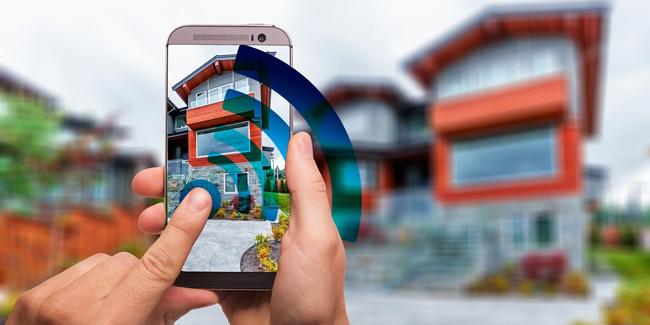Tomorrow, our homes will be equipped with smart locks. And we expect them to provide us with security guarantees at least equal to those of traditional locks. Manufacturers are working on it and already offer some interesting strategies to avoid intrusions, breakdowns and hacking.
Do you like our Questions & Answers? Subscribe to the Le weekend newsletter to receive our best publications on Saturdays and Sundays. You will also be interestedControl of entries and exits, deliveries and home services facilitated, remote opening. On the EDF Pulse & You co-innovation platform, there is no shortage of ideas for using smart locks. However, despite this enthusiasm to imagine the world of tomorrow, some Pulsers are wondering about the security guarantees offered by this new technology.
See alsoWould you be willing to use a smart lock?Some smart locks are activated by fingerprint recognition, a way of preventing intrusions. © metamorworks, Adobe Stock
How does the smart lock protect us from intrusions?
Thus, the first thing we ask of a lock is to protect our home from intrusion. How do smart locks perform this task? First, neither more nor less than a classic lock. Because the smart lock is generally installed on the existing barrel. Inside the house. It therefore remains invisible from the outside. But, even if it will not necessarily resist a crowbar, it will be able to alert you directly if you have simply forgotten to lock your door and above all, in the event of a lock picking attempt. Thanks to a vibration detection system, for example.
A smart lock also allows you to give access to your home to the people you choose -- and at the times you choose -- without having to give them a mechanical key. This limits the risk of loss, theft or copying of keys. Thanks to an application downloaded on his smartphone, the person can simply open your door at the desired time.

If you lose your smartphone or have it stolen, another authorized person can block their access authorization. And thus avoid an intrusion without even having to replace the lock as would be the case with a conventional lock in the event of loss and theft of the keys.
Some manufacturers offer physical key systems that recognize the smart lock the same way your smartphone recognizes an NFC Bluetooth speaker. They can be activated or deactivated at will. © Robert Kneschke, Adobe Stock
See alsoIt's up to you to imagine the smart lock you needThe fault-sensitive smart lock?
This is another fear raised by the Pulsers on the EDF Pulse & You platform. How do you access your home when it's locked with a smart lock and there's a power outage? The answer is simple: today's systems are all powered by batteries typically sized to last a year. An alarm is triggered when the battery level is low, to remind you to change or recharge them.
Did you know ?
On the EDF Pulse & You co-innovation platform, you will find EDF project managers, start-ups and individuals wishing to share their experiences and ideas to imagine the world of tomorrow.
To become a Pulser, all you have to do is create an account, post your ideas and vote for the best contributions. And the smart locks campaign even gives you the chance to win the installation of such a lock in your home for free!
Some locks are solar powered. In this case, there is no need to worry about recharging. It happens automatically throughout the day. And other manufacturers provide physical keys that allow the door to be opened in the event of a power cut.
Among the greatest fears of users in terms of smart locks: that of hacking. © Tierney, Adobe Stock
The smart lock protected from hacking?
As with any smart object, there are flaws in the way the smart lock communicates with the home owner's smartphone it is meant to protect. In 2016, researchers managed to hack ¾ of the models tested. Their recommendation: turn off Bluetooth -- the most widely used protocol in the smart lock industry -- on your smartphone when you're not using the smart lock app.
The builders still want to be reassuring. They argue that the people capable of hacking the signal emitted between your smart lock and your smartphone are not so numerous. In addition, the most recent models have gained in security against piracy. Some, for example, no longer rely on Bluetooth, but on a light signal that cannot be intercepted. Others offer the possibility of coding access using permanent passwords on the one hand and temporary ones on the other. Or again, with the help of codes to which one can at leisure add numbers before and after, always different numbers.
There is no doubt that specific certifications will soon emerge. They will take into account both the physical risk and that of cyberattacks. The first of these, the a2P@ certification, began to classify smart locks on the market according to their ability to withstand different levels of attacks.
Subject produced with EDF teams
See alsoDiscover the comparison of the best home alarmsInterested in what you just read?Subscribe to the newsletter The question of the week : our answer to a question that you are asking yourself, of course. All our newsletters!
Thank you for your subscription. Glad to count you among our readers!
Related definitionWhat is a door?
DIRECT. Assassination of Razia Askari in Besançon: "No guilt, no remorse, lack of empathy", the profile of Rashid Askari, accused of the assassination of his wife, dissected
[Video] The Amazing Spider-Man 2: the ultimate trailer
Samsung AU9000 Test | TechRadar
Nantes. He had assaulted a tram driver: sentenced to 6 months, he avoids prison